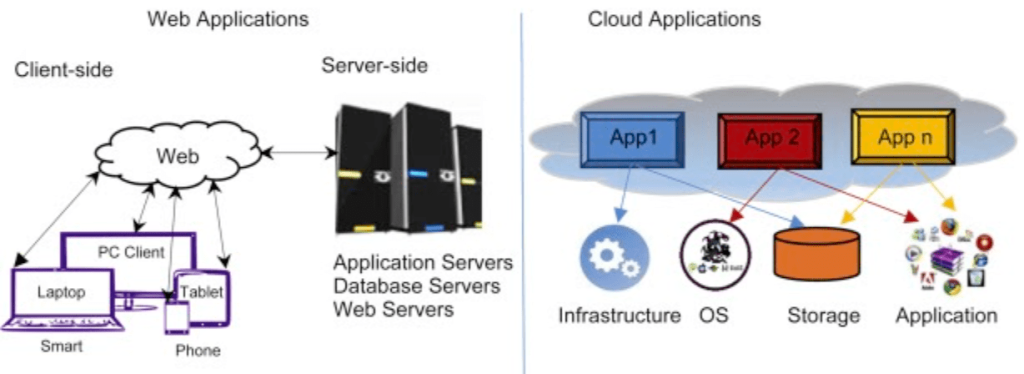The types of cloud server hosting plans that are offered vary depending on the hosting company.
Operating Systems
Most cloud server plans only give a selection of base OS bloatware. Bloatware is software that may be useful but isn’t essential for your use case. CentOS, Debian, and Ubuntu Server are the most popular Linux distributions for web servers. Some may provide Unix OS, such as Gentoo, Arch, and even FreeBSD spinoffs for rare users.
As previously mentioned, cloud servers are primarily base OS environments. Some hosting companies, on the other hand, supply pre-configured cloud servers for specific web applications. This is also known as software as a service (SaaS).
The following are some of the most well-known types of application servers:
- Web applications and content management systems (CMSs) such as WordPress and Nextcloud.
- Server management applications such as cPanel, Webmin/Virtualmin, Vesta Control Panel, and CentOS Web Panel (CWP).
- Web application firewalls (WAFs) such as pfSense provide DDoS protection and content delivery networks (CDNs).
- Load balancers, such as HAProxy, use DNS records to distribute web server requests among many synchronized servers.
- Virtual private networks (VPNs), similar to forward proxies, are used to protect online privacy when utilizing OpenVPN or WireGuard.


